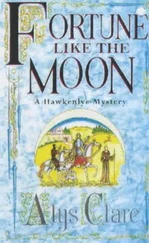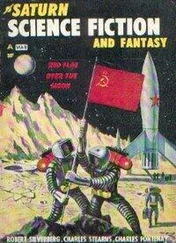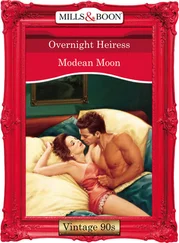Clare Vanderpool - Moon Over Manifest
Здесь есть возможность читать онлайн «Clare Vanderpool - Moon Over Manifest» весь текст электронной книги совершенно бесплатно (целиком полную версию без сокращений). В некоторых случаях можно слушать аудио, скачать через торрент в формате fb2 и присутствует краткое содержание. Год выпуска: 2010, ISBN: 2010, Издательство: Random House Children's Books, Жанр: Старинная литература, на английском языке. Описание произведения, (предисловие) а так же отзывы посетителей доступны на портале библиотеки ЛибКат.
- Название:Moon Over Manifest
- Автор:
- Издательство:Random House Children's Books
- Жанр:
- Год:2010
- ISBN:978-0-375-89616-3
- Рейтинг книги:4 / 5. Голосов: 1
-
Избранное:Добавить в избранное
- Отзывы:
-
Ваша оценка:
- 80
- 1
- 2
- 3
- 4
- 5
Moon Over Manifest: краткое содержание, описание и аннотация
Предлагаем к чтению аннотацию, описание, краткое содержание или предисловие (зависит от того, что написал сам автор книги «Moon Over Manifest»). Если вы не нашли необходимую информацию о книге — напишите в комментариях, мы постараемся отыскать её.
Moon Over Manifest — читать онлайн бесплатно полную книгу (весь текст) целиком
Ниже представлен текст книги, разбитый по страницам. Система сохранения места последней прочитанной страницы, позволяет с удобством читать онлайн бесплатно книгу «Moon Over Manifest», без необходимости каждый раз заново искать на чём Вы остановились. Поставьте закладку, и сможете в любой момент перейти на страницу, на которой закончили чтение.
Интервал:
Закладка:
“There’s no going back in there now,” Lettie said. “My brother, Teddy, is going to be a senior this year. He can take it back the first day of school, and no one will be the wiser.”
“Are you sure?” I hesitated.
“Sure I’m sure. Just put it somewhere safe until then and Teddy will put it back in its place.”
Back in its place. The first day of school. Where would I be then? What was my place?
Where would Gideon be? I had so many questions that had no answers. I recalled the definition in the dictionary.
Manifest—verb. To reveal, to make known .
The way I saw it, that was the wrong name for this town.
Drawing Straws
JULY 11, 1936
In our hunt for the Rattler, Ruthanne, Lettie, and I must not have been as secret as we thought. One day, I was walking up Main Street, caught up in my own little contest of tossing a hedge apple into the air and catching it, hoping to count to two hundred catches without dropping. I was on one hundred and fifty-eight when Mr. Cooper, the barber, stepped out of his shop, blocking my way.
He flapped his haircutting cape to shake off the clippings and said, “Hey, kid.”
I looked around to make sure he was talking to me.
“You one of them girls that’s been looking for a spy?” he asked, kind of half looking at me.
I wasn’t quite sure how to answer that. “Um.” I shrugged. I admit it wasn’t the best I could come up with, but it kept him talking.
“Yeah, well, my father came here from Germany. Hermann Keufer. We lived at 224 Easy Street. Can you believe that? A street called Easy and a German living on it during the war? I was fifteen when the war started, and I can tell you, it was far from easy.” Mr. Cooper took out his razor and wiped it clean with his apron.
I wasn’t sure why he was telling me all this, but he kept on. “He worked in the mines and sang baritone in a barbershop quartet. After he died, my mother changed our last name. She thought it would make things easier on us.” The sun glinting off the razor made his eyes water. “Somehow, I always felt like we were turning our backs on the old man.” He folded the razor on itself and put it into his pocket. “So if there was a spy here, good luck finding him, but it wasn’t my dad. All right?”
I nodded, relieved to watch him and his razor go back into the barber shop. My gaze went to the old picture in his store window of the group of men in overalls and miner’s hats. It was easy to spot Hermann Keufer with his handlebar mustache. Slowly, thoughtfully, I took up catching the hedge apple again, One, two, three … , but I wasn’t really paying attention to my counting anymore.
A couple of days later it happened again. This time it was the elderly Mrs. Dawkins. She saw me walking by the beauty shop while she was getting her curls done. She rapped on the window and motioned me in. Then she pulled me so close to her that the sharp-smelling concoction for her permanent wave nearly singed my nostrils.
“I know what you girls are up to,” she hissed, then looked over her shoulder at Betty Lou, the beautician, who was rinsing out strips of cloth across the room. “Be careful. You might uncover more than you bargained for.” With the curlers rolled up tight, her face seemed strangely misshapen, and I wanted to pull away, but she held me with her eyes. “Those were unusual times,” she said, lowering her voice and raising her eyebrows.
Betty Lou was coming back and Mrs. Dawkins released me. “Go on, now,” she whispered, “and remember what I told you.”
I hadn’t said a word to the woman, but she talked as if she was revealing some long-buried secret. If there was one thing I was learning about the town of Manifest, it was that Secret was its middle name. And if someone had a secret, I seemed to be the one to tell. One thing was clear. Those were unusual times.
At Sunday night’s church service, the crowd at Shady’s place—if eight people could be called a crowd—got settled into their seats. Hattie Mae had been coming regularly, along with Velma T. Harkrader. It was interesting that some people looked just how I imagined them from Miss Sadie’s stories, while others looked different. Velma T. was just what I’d imagined. Tall and skinny, a little on the homely side, but smarter than any woman I’d ever known.
Then there was Mrs. Dawkins, who didn’t look nearly as scary with her hair done up nice instead of pulled back in curlers. Ivan DeVore, Mr. Cooper, Mr. Koski from the diner, Shady, me. Of course, there were many people from Miss Sadie’s stories I hadn’t seen yet and wondered if they just kept to themselves or had moved away.
That Sunday night we had a surprise guest. Mrs. Evans. The stone lady from the porch. I didn’t think Shady knew she was coming or he’d have mentioned it, but he didn’t act the least surprised. He just welcomed her in and found her a seat next to Hattie Mae. I must have been staring and lost in shock, because Shady had to ask me three times to take my seat. I pulled up a chair.
Finally, Shady started the service with a reading from the Bible. It was about two men walking along a road. Then, all of a sudden Jesus was walking with them, only they didn’t know it was him. After they talked awhile, they “broke bread”—that was what they called eating—and somehow, just by eating with him, they recognized who Jesus was.
It was a good story, and I wouldn’t have minded hearing what Shady had to say about it. After all, he was a preacher, if only a temporary one. But at the First Baptist Church and Bar, as I had come to call it, there never was much of a sermon. Shady figured everyone had been preached to enough in their own churches that morning.
Even though Shady was the interim Baptist minister, I think he was more of a Quaker at heart. One of those people who called themselves Friends. Gideon and I had gone to a Quaker meeting once, because they were having roast beef and sweet potatoes afterward. It was real nice the way they came together in what their preacher called silent, expectant waiting. Of course, eventually, those Friends started talking and sharing about the Lord.
Well, the folks in Manifest weren’t really Friends; they were more like acquaintances. And they didn’t often get past the silent part to the sharing-about-the-Lord part. I supposed some were coming for the food following the service, just like Gideon and I had, and if that was the case, they were probably glad they hadn’t wasted many words on what food was provided. Sometimes beans, sometimes crackers and canned sardines.
But there seemed to be a different mood in the group this Sunday night. Like they wanted to say something but couldn’t quite get up the nerve.
After an awkward few minutes went by without anyone saying a word, Hattie Mae ended the silence, saying, “Well, I think it’s time to serve up the refreshments.”
I was all ready to help parcel out the smidgeon of food when, lo and behold, Hattie Mae uncovered a huge angel food cake. It must have been twelve inches high. She cut it up into nice big wedges while I poured the coffee.
There was a new kind of hush as folks took their first bites and savored the sweet fluffiness of it. For a moment they all seemed lost in their own private enjoyment of the cake. Then I opened my big mouth. “Hattie Mae,” I said, “this here angel food cake is so good it could’ve won first prize in a baking contest.” If I’d stopped there, everything would’ve been fine. But I went on. “I went to a county fair one time where they had a baking contest. They gave big blue ribbons for first prize. Did they ever have a fair like that in Manifest?”
Everyone stopped eating and stared at me. I put my fork down and tried to swallow the too-big a bite I’d taken. “I mean, doesn’t every town have a fair like that?” There was another pause, during which the only sounds were forks being placed on plates while glances passed back and forth.
Читать дальшеИнтервал:
Закладка:
Похожие книги на «Moon Over Manifest»
Представляем Вашему вниманию похожие книги на «Moon Over Manifest» списком для выбора. Мы отобрали схожую по названию и смыслу литературу в надежде предоставить читателям больше вариантов отыскать новые, интересные, ещё непрочитанные произведения.
Обсуждение, отзывы о книге «Moon Over Manifest» и просто собственные мнения читателей. Оставьте ваши комментарии, напишите, что Вы думаете о произведении, его смысле или главных героях. Укажите что конкретно понравилось, а что нет, и почему Вы так считаете.












